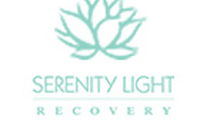Texas Drug and Alcohol Rehab

Texas is one of the largest states in the in country; it is second to Alaska and California in size and population, respectively. As such, there are bountiful Texas rehab centers available, ranging from a number of secular and faith-based treatment programs in the cities to luxury centers out in the wilderness. Whether you live in the "Lone Star State" or are simply looking for out-of-town treatment options, there are plenty of avenues you can take to initiate your rewarding travel on the road to recovery.
Texas Rehab Facilities: Residential & Outpatient
Addiction is an ongoing crisis that affects millions of Americans each year. Many people mistakenly rationalize that substance abuse is the result of a lack of principle; that overcoming this issue is a simple act of volition. Realistically, drug addiction is a complex disease that chemically alters the brain among other physical changes. Hence, those who are addicted cannot simply drop their behavior like a bad habit. They need extensive proper physical and mental intervention – a process that begins with searching for addiction recovery facilities that fits you or your loved one's lifestyle.
There are two types of rehab facilities: residential/inpatient rehab and outpatient. Either may require weeks to months to complete their respective programs. However, the National Institute on Drug Abuse (NIDA) suggests that patients need at least three months on average for a higher chance of sustained recovery. Let's explore the benefits of inpatient and outpatient addiction treatment settings.
One-on-One Focus vs. Group Therapy
Residential facilities are great for those who need intensive care, but aren’t comfortable being in a group setting. They concentrate solely on you, with a specially-tailored program that addresses all your personal needs. You don’t need to worry about any other responsibilities besides recovery.
For outpatient programs, you have flexibility in maintaining your responsibilities while embarking on your recovery journey. Outpatient centers typically only require approximately 10 to 12 hours of medical treatment per week. This is a great option for those with young children who need supervision and care, or for those who simply cannot afford to miss work at large.
Infrastructure
Residential rehab facilities are wonderfully-crafted to guide you every step of the way. As such, you will also gain from being isolated from potential negative influences from the outside that may cause you to relapse. While it may seem challenging to be separated from your loved ones, the major benefit to this is being free from personal guilt.
If you have gotten this far, you most likely understand by now how painful it is for your friends and family witnessing you struggle during the early stages of recovery. You can take solace knowing that know you are in good hands, and that kind of peace of mind is rare.
Outpatient facilities, on the other hand, are great choices for those who still need familial support, and have loved ones who are stoic enough to ride along the recovery journey with them.
24/7 Medical Staff
With all programs, detoxing is an essential part of the process. However, it can be very dangerous without proper monitoring. In residential facilities, you have the benefit of knowing that there is a medical team ready to wait on you, hand and foot.
For mild to moderate addiction, outpatients will have to regularly visit a hospital or other treatment facility for physical and mental evaluations during the detox phase. They focus on drug abuse education and counseling, and are also great for use as a long-term treatment regimen.
Comprehensive Wellness.
Drug abuse is debilitating, but it doesn’t define who you are. You are more than what you do. You are a person, a son or daughter, a friend, and so much more to many other people in your life. And while you may have other physical or mental disorders, you are more than the sum of your parts. This is why residential rehabs are geared toward addressing your entire well-being, not just your addiction.
Outpatient facilities are similar, however they utilize morning or nightly meetings to help patients maintain their normal schedules, as well as individual counseling to give you the best possible outcome.
Texas Alcohol Rehab Centers
According to the National Institute on Alcohol Abuse & Alcoholism (NIAA), there are about 17 million adults ages 18 and older who abuse alcohol, and 1 in 10 children live in a home with a parent who has a drinking problem. In Texas alone, the National Institute on Drug Abuse (NIDA) claimed that alcohol was the top drug of choice among it's citizens. In 2012, a whopping 58 percent of seventh and 12th graders used alcohol, and 25 percent of that same percentage drank alcohol within the last 30 days.
While these statistics are alarming, the first step to identifying whether you have a problem is to take quick inventory of yourself.
- Do you end up drinking more than you intended for the night?
- Have you tried to reduce your intake, but to no avail?
- Experienced strong cravings?
- Derelict important duties at work or at home?
- Continued drinking despite depression and anxiety?
If you checked off the box for any of these, you may have alcohol use disorder (AUD) and may need treatment.
Alcohol rehab centers treat alcoholism in a variety of ways. Medical detox is usually the first step in most treatment programs, and it purges the body of alcohol via a medically-supervised regimen.
Residential treatment requires that you stay at an alcohol rehab center during recovery, as opposed to outpatient programs which give you more freedom. Instead of living at a treatment center, you have the option of staying at home with family. You can still go to work, spend time with your children, and maintain other activities in between your sessions, and can schedule your sessions around your needs.
There are also some medications your doctor may prescribe to help reduce your cravings and withdrawal symptoms. In some cases, you may need to take medication that shoehorn an aversion toward alcohol altogether, causing negative effects when consumed.
Acamprosate reduces your alcohol cravings and symptoms during withdrawal period. Upon quitting, Naltrexone may be used to reduce alcohol cravings. The drug Disulfiram, which contains chemicals that inflict headaches, nausea or vomiting onto the user when consuming alcohol, could be prescribed to discourage drinking. Disulfiram is used primarily in extreme cases where alcohol consumption is compulsive and beyond simpler methods.
Texas Drug Rehab Centers
Drug use is fundamentally the same as alcohol use when it comes to substance abuse. However, there are key differences between them; namely availability. Alcohol is a non-prescription drug that is technically "over the counter," so the common consensus is that it is not as harmful as narcotics. In actuality, this couldn’t be further from the truth. Both substances poison the body, and can have dreadful long-term effects if left unchecked.
Those who have used drugs for an extended period of time, or in large quantities, a residential treatment program can help provide the "time out" needed to let your body detox. In these types of treatment programs, you will be able to safely detox in a controlled, medically-supervised environment and gain new coping and prevention strategies.
These newfound skills prepare you for a community-based, outpatient environment, which is helpful for those who have finished or don't require medical detoxification and/or round-the-clock supervision. Structure-wise, these facilities vary but in most cases you can expect group therapy sessions, individual counseling, psychotherapy and relapse prevention planning.
Texas Mental Health Rehab Centers
Substance abuse and mental health go hand-in-hand, which is why dual diagnosis or co-occurring disorders treatment is such an important factor in full-fledged recovery. It’s not always easy identifying which problem is more imminent – your mental health condition or substance use disorder. A dual diagnosis program examines both at the same time, giving you the best chance at completely restoring your health.
According to the National Institutes of Health (NIH), patients who struggle with co-developed mental disorders have better result when when they enroll dual diagnosis treatment programs.
While in these types of programs, you will undergo treatment programs for your mental health along with substance use. This ranges from dual diagnosis therapy to recovery groups, along with family programs, individual counseling, and other therapeutic services.
If you've been formally diagnosed with a mental health condition and are seeking treatment for substance use disorder, you'll need to make an appointment with a mental health rehab or alcohol and drug counselor to discuss your recovery goals and mental health history to determine what next step is right for you and your recovery.
Affordable Texas Rehab Centers
Just like any treatment program, the cost of a rehab treatment will vary based on the amount of hours you're recommended to complete. Other factors include amenities, insurance funding and the type of program itself.
Before you get started, it's important to talk with your treatment center about payment plans or other options they may have available. Some residential treatment programs are covered by insurance or by a state's consolidated fund, while others require either a partial or full out-of-pocket payment. Inquire about insurance, statewide consolidated funds, or a scholarship program for free or subsidized treatment.
No matter which option you choose, you will be among others learning to cope from drug and alcohol addiction as well. And it is this sort of community that not only helps you overcome loneliness and isolation, but make wiser choices when it comes to your circle of friends.
Remember, the journey to your recovery starts with one step. Browse our directory of Texas treatment programs or call 800-772-8219 to inquire about your recovery options.










